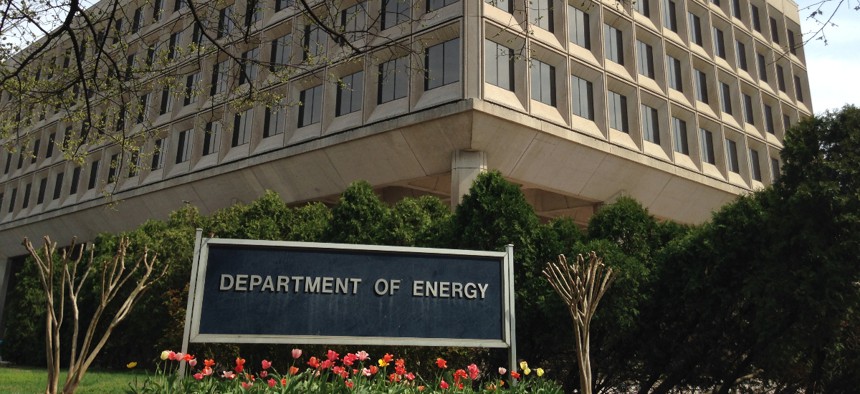Lawmakers Intro 2 Bills to Strengthen DOE Research Partnerships

Hisham Ibrahim/Getty Images
The bills would codify the Department of Energy’s partnerships with NASA and the National Science Foundation to further research efforts.
House Science Committee lawmakers introduced two bills on Thursday to bolster the Department of Energy’s existing research partnerships with NASA and the National Science Foundation to better address critical science and technology challenges. The legislation would codify collaboration between the agencies and enable them to better combine resources, according to a press release.
As global competition increases and new opportunities for governmentwide collaboration and coordination develop, it is important to strengthen these interagency research partnerships for the future, the press release noted.
The DOE and NASA Interagency Research Coordination Act, introduced by Energy subcommittee Chairman Brandon Williams, R-N.Y., and Space and Aeronautics Subcommittee Ranking Member Eric Sorensen, D-Ill., would improve coordination between the two agencies, who have a history of collaborating on fundamental and early-stage research, especially on nuclear propulsion and power for spacecrafts.
“These two agencies share a common goal of advancing scientific knowledge and improving our understanding of the universe,” Williams said.
If passed, the legislation would help DOE and NASA partner to address challenges of building lunar infrastructure and efficiently powering a journey to Mars with astronauts. According to the bill, research areas could also include modeling and simulation, machine learning, high energy physics, earth and environmental sciences, quantum information sciences and radiation health effects, among other things. In addition to collaborative research, the legislation also allows for data and information sharing.
“Strong collaborations push our understanding of the world to new heights,” Sorensen said. “I’m proud to spearhead this bipartisan initiative with my colleagues to codify the natural relationship between the National Aeronautics and Space Administration and Department of Energy to prepare our country for the next great advancements in science and exploration.”
The two agencies have previously collaborated on a tool to study the Dark Ages of the Universe.
The second legislation, the DOE and NSF Interagency Research Act, was sponsored by Research and Technology Subcommittee Ranking Member Haley Stevens, D-Mich., and cosponsored by Rep. Jim Baird, R-Ind., to support the two agencies’ existing partnership and help them work on research around physics, quantum information sciences, artificial intelligence, advanced manufacturing and workforce and education development.
“These two agencies are absolutely critical to ensuring our national competitiveness both today and for the decades to come,” Stevens said. “This bill further strengthens the legislative foundation we secured with the landmark CHIPS and Science Act last summer. Ensuring our premiere science [agencies] are able to foster a collaborative research environment is critical to supporting our overall R&D enterprise, and this bill will do just that. Importantly, by strengthening education and training, the bill will also advance efforts to build a strong STEM workforce.”
Furthermore, the bill stated that this collaboration could also help plasma science and engineering; biological and computational sciences; engineering, modeling and simulation; machine learning; data analytics; energy and material sciences; and microelectronics, including chips. The legislation also aims to help share data among agencies, national laboratories, academic institutions and nonprofits.
“The United States has earned its reputation as a world leader in scientific research and innovation, and now more than ever, we must reinforce critical partnerships that promote domestic advancements,” Baird said.






